Market failure
Market failure
The failure of the market to allocate resources efficiently. Market failure results in allocative inefficiency, where too much or too little of goods or services are produced and consumed from the point of view of what is socially most desirable.
Overprovision of a good means too many resources are allocated to its production (over-allocation).
Under-provision means that too few resources are allocated to its production (under-allocation).
Market failure is any situation where the allocation of resources by a free market is not efficient. It occurs when the production of a good does not take place at the socially efficient level of output (allocative efficiency where MSC = MSB).
External benefit = social benefit - private benefit
A social optimum
A "best" situation from the point of view of allocative efficiency.
An externality
Occurs when the actions of consumers or producers give rise to negative or positive side-effects on other people who are not part of these actions, and whose interests are not taken into consideration.
Positive externality of consumption/production
A external benefit created by consumers/producers.
Consumption
Production
Negative externality of consumption/production
External costs created by consumers/producers.
Consumption
Production
Merit goods
Is one whose consumption creates external benefit
Demerit goods
Is one whose consumption creates external costs
Policies to correct:
- Government regulation
Ways:
- Setting a maximum level of pollutants permitted
- Limit the quantity of output
- Requiring polluting firms to install technologies reducing the emissions
Advantages: Regulations have the advantage that they are simple compared to market-based solutions, and can be implemented more easily. {.is-success}
Disadvantages: Regulations create no market-based incentives for firms to use less polluting resources, and are thus unable to lower the size of the externality. {.is-danger}
May suffer from lack of sufficient technical information on types and amounts of pollutants emitted.
There are costs of policing, and there may be problems with enforcement.
- Market based policies
Ways:
- Taxes
- Tradable permit
Both taxes and tradable permits have effect of internalizing the externality, meaning that the costs that were previously external are made internal, because they are now paid for by producers and consumers who are parties to the transaction.
Taxes on pollutants emitted and trade permits provide incentives to firms to economize on the use of polluting resources (such as fossil fuels) and use production methods that pollute less. This may lead to lower pollution levels at a lower overall cost, the whole society are more likely to face a decreasing external cost.
Disadvantages:
- Difficult to measure pollution & set tax amount
- Difficult to identify polluting firms & ascertain each firm’s responsibility
- Cannot actually stop pollution (only reduce it)
- Tradable permits face all the technical limitations listed above for taxes.
- Issues of political favouritism may come into play, as governments give preferential treatment to their ‘friends’ and supporters
A public good
Is one which is both non-rival and non-excludable.
Free rider problem
Occurs when people can enjoy the use of a good without paying for it.
Common access resources
Resources that are not owned by anyone, do not have a price and are available for anyone to use without payment.
Non-rival
Means that one person’s consumption of the product does not stop another person consuming the product.
Non-excludable
Means that it is not possible to prevent those not willing to pay for it, from consuming it.
Sustainability
Maintaining the ability of the environment and the economy to continue to produce and satisfy needs and wants into the future.
Sustainable development
The development needed to meet the needs of the present generation without compromising the ability of future generations to meet their own needs.
Types of market failure:
- Public goods
- Common access resources
- Asymmetric information
- Monopoly power

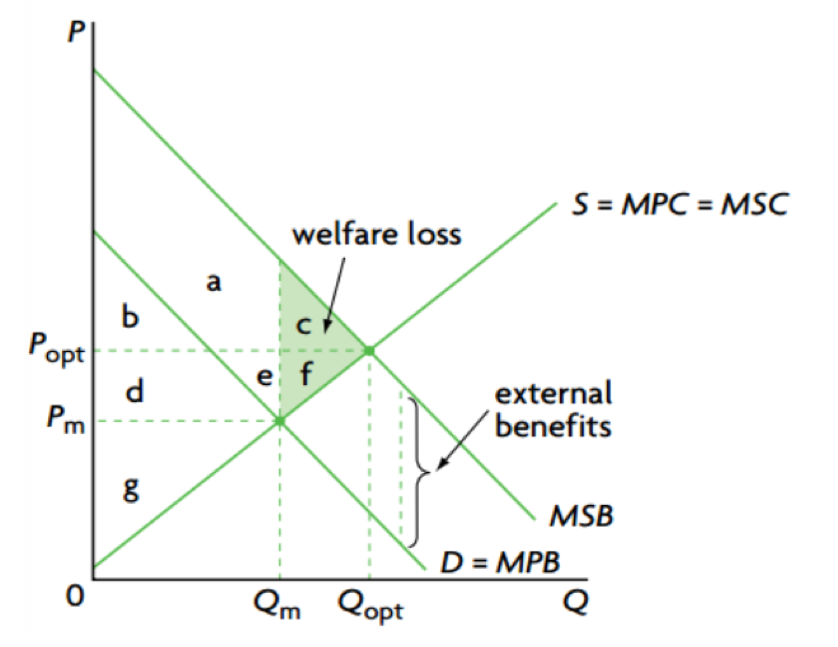
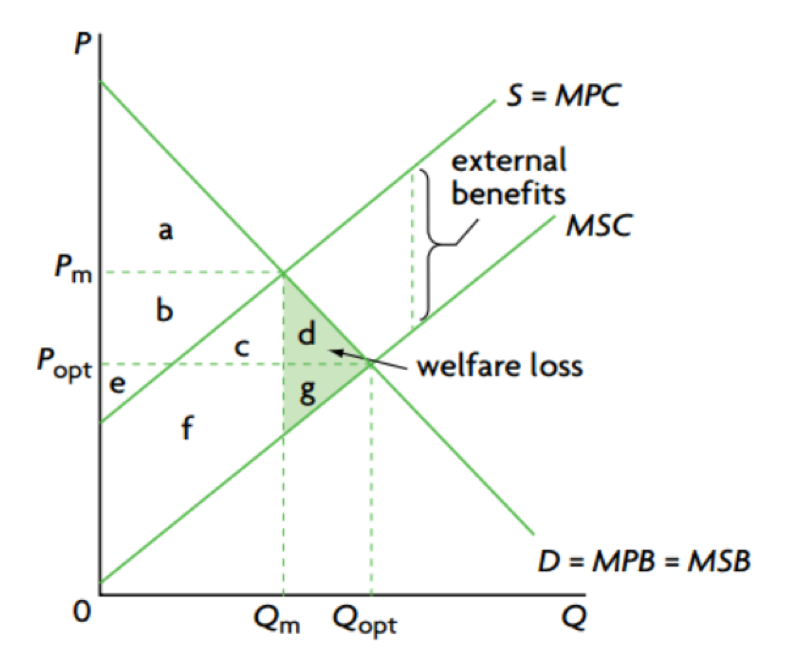
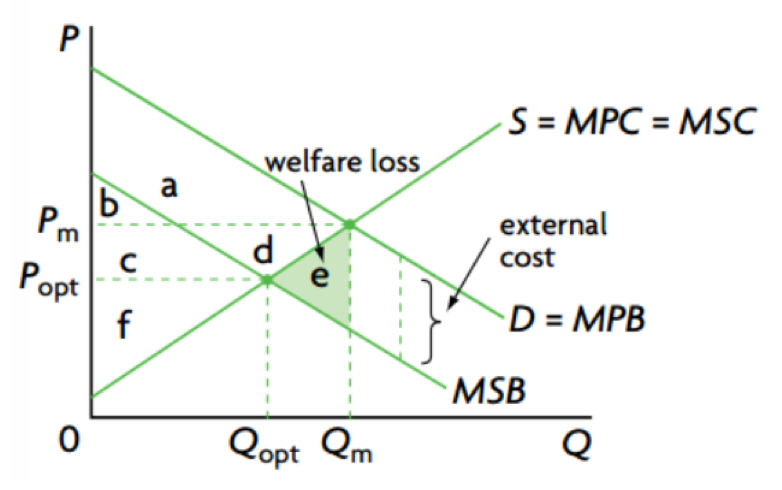
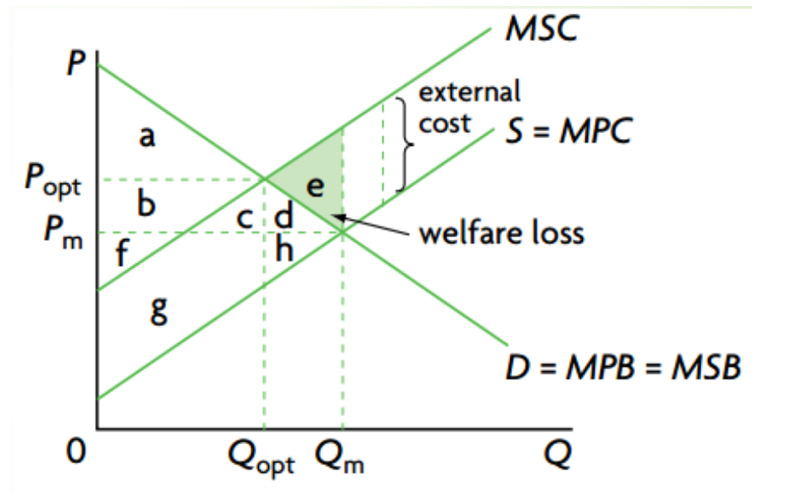
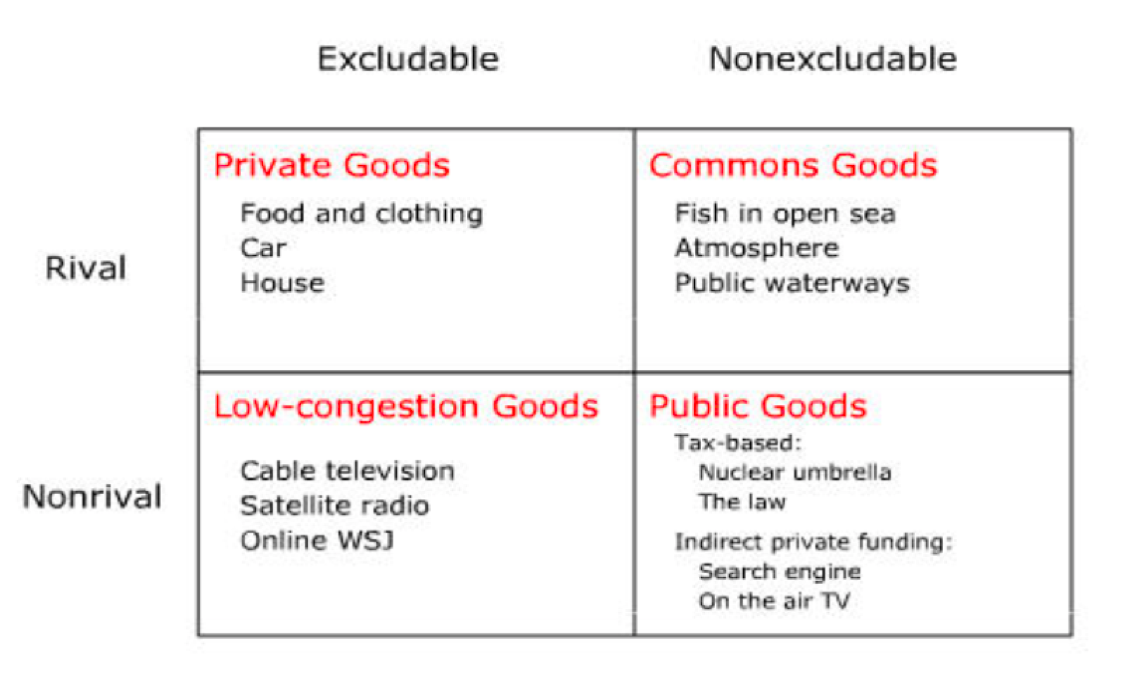
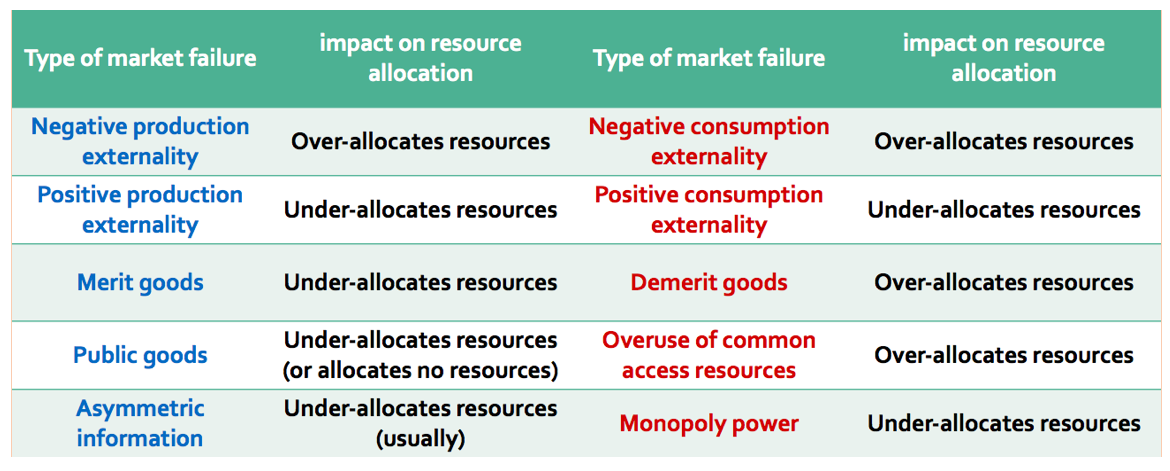
No Comments